Stars & Empire: 10 Galactic Tales Read online
Page 21
A few days later I found out he wasn’t the only one leaving. I was in my office working on supply manifests for the battalion when I realized I hadn’t eaten all day. I was just about to get up and run down to the officer’s club for dinner when my buzzer sounded, and in walked General Holm. I jumped to my feet and saluted, but he waved for me to sit down as he dropped hard into the other chair.
“General, I’m glad to see you.” And surprised. Usually when a general wanted to see a major, the major went to the general, not the other way around.
“Erik, I have some news for you. First, you’re being decorated again. For…”
“General,”—interrupting a general is stupid, by the way—“that is not necessary. I just did my job.”
“It is very necessary.” He didn’t seem to care that I’d cut him off. “In fact, there is no way around it. Johnson’s battalion got their asses handed to them on Eridu even after they had preliminary intel from you. And Tyler Johnson is a good officer. Yet your people won their fight with no backup. Then you took the wreck of Johnson’s group and made them a part of your battalion and had them in the field three weeks later.”
I opened my mouth to say something, but nothing came out. I didn’t have the easiest time accepting praise. It made me uncomfortable. Finally I just said, “Thank you, sir.”
He looked at me with a strange look on his face. “Let’s see how much you want to thank me when you hear the rest of it. Erik, you are the youngest major in corps history. You are the most decorated officer at your rank. You are a hero of this war.” He paused, as if he didn’t want to continue. “You’re going back to Earth, and you will receive your medal from the president of the Western Alliance. Then you will go on a tour of major cities, meeting with local dignitaries, attending events—that sort of thing. You’ll be on Earth for 4-6 months before reporting back for combat duty.”
I shifted in my seat, suddenly very uncomfortable. “Sir, I’d really rather stay with my battalion. They had a hard campaign, and I think it would be harmful for them to lose their commander right now.”
The general’s expression was a combination of sympathy and amusement. “Erik, there’s no squirming out of this one. This comes from way above me. The Earthside politicians want some war heroes to show off at parties and receptions. There’s no way to turn down a decoration from the president. You’ll be part of a whole delegation. I’m sure it will be first class all the way.”
He paused again, though just for a moment. “Trust me, I’m as upset about this as you. I’m going out against the outer rim, and I don’t like losing my best battalion commander and one of my most trusted officers. And a friend too. I’m going to miss having you around, Erik.”
He got up to leave, but first walked over and extended his hand. “You are leaving the day after tomorrow on the Wasp.”
I took his hand and we shook, then he turned and left. I stood for a minute or two, then slumped back into my chair.
I wasn’t hungry anymore.
CHAPTER 11
AS Wasp
Approaching Earth
Earth. It looked unreal, a blue orb slowly getting bigger on the viewscreen as we made our final approach. It was beautiful from space, but of course there are many kinds of beauty, and appearances are often deceiving.
Earth. My home. Or at least my birthplace. I hadn’t been there for nine years, and I hadn’t left with any great affection for the place. But still, this was where I was from; this was where all those colonists I’d fought to defend came from, or at least where their parents or grandparents did.
I was really dreading this. First, I was missing the Outer Rim campaign, which was General Holm’s operation to take out the Caliphate colonies between Gliese 250 and the unexplored frontier. My battalion was going—actually it was already gone—on the way to 23 Librae, the first objective of the campaign. Thinking about my troops out there without me made me sick to my stomach. The fact that they were fighting without me so I could appease the vanity of a bunch of politicians made me quiver with rage.
Beyond that, I didn’t particularly care for being heaped with praise, and unless it came from one of the few people I respected, I assumed it was insincere, self-serving bullshit anyway. I hated the thought of being the politicians’ propaganda tool, but I wasn’t given any choice, so I tried to gracefully accept the assignment. Being wined and dined by a bunch of government types while our troops were out fighting and dying was as close to my own version of hell as I could imagine. And I’d seen some very convincing incarnations of hell.
There was one bright spot, and I was sure I owed that one to General Holm. I was part of a whole delegation, and somehow he’d gotten Captain-Doctor Sarah Linden appointed. Officially she was there to speak about the medical care our troops were receiving, but I couldn’t believe it was a coincidence. I have no idea how he even knew about the two of us, but I was grateful.
She was coming from Armstrong on another ship, and the best idea I could figure from the schedules I could access was that she should have arrived a couple days before mine. I was excited to see her, but also nervous. We’d corresponded as frequently as interstellar communications in wartime allowed, but I hadn’t seen her since right after graduation. The little bit of time we’d spent together was amazing, but I didn’t know what to expect now.
I was treated like a guest of honor on the destroyer Wasp, and Captain Grinsky gave me the run of the ship, the command bridge included. Once we entered the solar system I started spending a lot of time up there, checking out the changing view of the familiar layout of planets.
Our course took us past Saturn, and the close in view of that magnificent planet and its rings was amazing. As we approached close to Titan we got an incredible view of that massive orange moon. Titan was a Martian Confederation possession, and we were shadowed by a Confed patrol vessel until we’d passed out of weapons range.
The treaties that had maintained peace on Earth for a century also regulated the use of the solar system. Sol had five warp gates, and the warp nexus in the Centauri system had another eight, and both systems were neutral space where combat was forbidden by treaty. The powers could establish space stations and outposts for refueling and similar purposes, but arming them in any way was forbidden.
Most of the colonized areas of the solar system itself were part of the Martian Confederation, though the Alliance controlled Mercury and shared Europa with the Confeds. All of the Earth powers had bases on the moon, which was divided into eight sectors.
We’d come in from the Ross 128 warp gate, which was the furthest one out from Earth’s orbit and currently on the opposite side of Sol, so our inbound voyage took seventeen days. When we passed the moon’s orbit, the captain commed me and asked if I wanted to come up to the bridge and watch the final approach and docking.
We were scheduled to dock with Alliance Station One, the first of the Alliance’s three large transfer stations in Earth orbit. The Caliphate also had three stations, but most of the other powers only had two. The South American Empire was down to one, having lost the other in a reactor accident about fifteen years before. The station was enormous, bigger even than the one at Gliese 250. There were umbilicals for at least a hundred ships of various sizes, including several large enough to dock battleships.
The wasp’s primary screen projected the view ahead, and the secondary screens displayed shots transmitted from the station, showing our approach. I was impressed with how well the crew functioned, handing the multitude of operations required to dock the ship with practiced ease.
The ship moved slowly, powered only by positioning thrusters, until it latched onto the docking port and came to a total stop. On the monitors I could see about ten bots and two or three technicians in space suits maneuvering toward the ship to attach various umbilicals. These connections would be used for refueling and resupply of the Wasp while it was in orbit. According to the manifest, they were due to depart in 48 hours, which was a crash schedule to g
et a warship refueled and rearmed. But there was a war on.
I said my goodbyes to the Wasp crew, and gave the captain my heartfelt thanks for her hospitality. I took the lift down to the docking portal and met my assistant, Sergeant Warren, who had my baggage packed on a hover-sled and ready to go. We walked down the tube, which led to an access gate on the station. We were in the military section, so we could dispense with the security and customs hassles that awaited civilian travelers.
I expected to have an officer meet me to escort me planetside, but I wasn’t ready for the delegation that was waiting. Outside the docking portal was an honor guard of two squads in full dress uniform lining my path and a delegation of six officers with a press detachment. I instantly became uncomfortable, and I had to fight the urge to turn around and head back to the Wasp, but then I caught a glimpse through the crowd at a mound of tousled blonde hair pulled back into a loose ponytail.
What was she doing here? I thought she’d be on Earth by now. I immediately forgot the reporters and film crew and overblown reception committee. And I certainly forgot any desire to run back to the Wasp. I wanted to push my way through the crowd to get to her, but the major in me said I had to meet the delegation first. I immediately decided he was a pain in the ass, but I reluctantly obeyed myself and stood fast.
I walked down the line of officers, giving each one a sharp salute followed by a handshake. I’d worked most of the way down the line, from a colonel to a first lieutenant when I finally got a good look at her through the crowd. When I looked into her eyes and saw the smile she flashed me, all my apprehensions disappeared.
I saw a small podium and suddenly realized with horror that I was expected to say something. The combat reflexes took over and I walked right up to it and gave them my best authoritative hero voice. “Thank you so much for this unexpected and overwhelming welcome.” I paused for a few seconds, looking thoughtful, but actually trying to think of something to say. “I have been away for a long time, and I can’t tell you how happy I am to be back.” A lie, but a polite one at least.
“I stand here as an officer sent to receive a tremendous honor, but I am not here just for myself. I am here for all those Marines, living or dead, who have fought so bravely throughout explored space.” That drew some applause. Yes, I thought, you all should applaud for those men and women. They are the real heroes. “I am very anxious to get down to the surface,”—another lie—“and see home after nine years away, so I hope you will forgive me for keeping these comments brief. Thank you all. Now excuse me, I have to go kiss my doctor.”
Ok, I think I might have left that last bit out, though I was certainly thinking it. I walked through the crowd, unilaterally ignoring all of the questions from the media types. I did give them a nice video clip though, a major kissing a captain right in the middle of the arrival gate. I bet that got some play.
She hugged me so tightly and for so long, I knew immediately the time apart had done nothing to diminish our relationship. Neither of us wanted to let go, but we reluctantly resigned ourselves to the need to act like officers. For now. We walked over to the intra-station car, and got it. Each car held eight people, and the group tailing us filled half a dozen. I had been so excited to see Sarah that I had forgotten all about my baggage, but a quick look back to the third car was all I needed to see Sergeant Warren had things well in hand. Good, I could worry about more important things. Sarah and I were next to each other in the first car, and we spoke eagerly in hushed whispers during the short trip to the shuttle docking area.
The car took us right to the boarding area for the Earth shuttle, and within a few minutes we had boarded and strapped in the for short ride to the surface. Sarah, who had been on the station for three days waiting for me, had read our itinerary, and she warned me that we faced a larger delegation when we landed. I scowled less when she told me something annoying than when anyone else did, but it must have been enough, because she giggled softly when she saw my expression. She knew my feelings about politics, and though she’d never said a word to me about her own thoughts on the subject, I got a strong feeling that, in her own less hostile way, she agreed with me.
The ride down was gentle—downright comfortable, in fact. This wasn’t a shuttle for landing troops on a battlefield. Too many dignitaries took this ride to risk soiling expensive suits with projectile vomit. The shuttle had windows, and I got a great view of the Wash-Balt Metroplex as we made our final approach. The massive complex was a series of eight large urban clusters, stretching over 50 kilometers and connected by high-speed magtrain. Between and around these walled-off forests of skyscrapers was a vast sea of decaying slums, stretching as far as I could see.
I wondered if these endless blocks of rotting old buildings and basic materials factories were as terrible as the ones I remembered. How many versions of myself were down there, living appalling lives of violence and poverty? Most of them, I suspected, were more likely to end up dead in some back alley or execution chamber than to be saved as I was.
Wash-Balt was many times the size of New York. The political center of both the United States and the Western Alliance, it was the home to over five million government workers, and I couldn’t even begin to guess at the multitudes living in the vast ghettos.
The shuttle made one more arcing turn, and we got nice a view of Chesapeake Bay as we maneuvered toward the spaceport east of the city. Torrance Spaceport was named for the first president of the Western Alliance, and it was one of the busiest in the world, a fact that was apparent when we were required to circle the city three more times before we go clearance to land. The shuttle descended softly on its maneuvering jets, slowly dropping the last 50 meters through a portal that appeared when a set of huge double doors opened in one of the large docking bays. Once we were on the ground, a boarding tube extended, and walked through the conduit to the concourse.
They weren’t kidding about the crowd. There were people filling the entire expanse and an area with seating that was fully occupied by self important types in pricey suits. Right outside the docking tube they had set up a raised dais with a podium and a row of seats for us.
There were seven of us on the shuttle. In addition to Sarah and myself, there was another combat Marine, an enlisted man who had held a position despite being the last survivor in his platoon. There were a couple naval officers as well, along with a militia colonel and a logistics specialist.
We all had to say a few words. I gave my usual grudging comments, being as charming as I could manage and wishing I had my armor here so Hector could give the speech using my voice (he was very good at it—they would never have known). I tried to keep it very short, but I got a bunch of questions, most of them asking how I prepared for an assault and what it was like to fight a battle. What do you think it’s like, asshole? Let me take a few shots at you, and then tell me how much you enjoyed it.
Unlike me, Sarah was beyond gracious. God, she was an amazing speaker, and she had everyone’s rapt attention as she went on about how the Corp’s medical services worked, from hospital ships all the way to the big medical centers on Armstrong and Atlantia. Every eye was on her, and not just because she was drop dead gorgeous, but because you could feel the passion in what she was saying. Although I knew her better than anyone there, I was just as mesmerized. I was grateful to her for what she had done for me, and on a personal level I was well on my way to falling crazy in love with her (I was already there, but hadn’t quite admitted to myself yet), but while she was speaking it really hit me that she had saved hundreds, maybe thousands of lives.
It ended up being more than two hours before the speeches were done, the questions answered, and we were allowed to leave. They’d arranged for luxury transports to take us to the Willard Hotel. The Willard was a massive silver-glass building about a kilometer high, with five segments, each one a bit smaller than the one below, creating a roof deck around the perimeter at the base of each new section. Each segment was a separate hotel, ranging from nor
mal high-end accommodations in the bottom to what I can only assume was an unimaginably plush section for VIPs at the top.
The Willard appeared to be one of the three or four tallest buildings in the DC sector of Wash-Balt, which was a jungle of skyscrapers connected by monorail systems at several levels. The transport vectored toward the hotel and, to my surprise, moved to the level four docking area. Not quite the top, but much higher than I’d expected. Apparently I was more useful to the politicians now as a decorated major than I was when they expelled my whole family out into the wastelands to die.
Sarah and I sat next to each other, but we were mostly silent. Being back on Earth wasn’t easy for me, and somehow the hypocrisy of being treated like some sort of VIP was making it worse. I’d seen the ugliest side of this society—did they really think a little luxury was going to make me forget it? Sarah was just as quiet as me, and I suspected that she had her own demons to confront. I hadn’t told her much about my childhood, and she had been just as stingy with details about hers. She was five years older than me, and I knew she had made two small assaults before she was transferred on the basis of aptitude testing and put through medical training. But that is about as far back as my knowledge went.
After the transport docked we were ushered into the hotel lobby and met by the concierge staff. They welcomed all seven of us, and gave us small pocket-sized devices—portable AIs that would assist us during our stay. If you forgot the way to your room, you could just ask the AI. Want a cheeseburger and chocolate cake at 3am? Just ask your AI to order it for you. Apparently, we had very few spending limits and could order whatever we wanted in the way of food, entertainment, and services. Within reason, I suppose, though I wasn’t planning to test the limits.

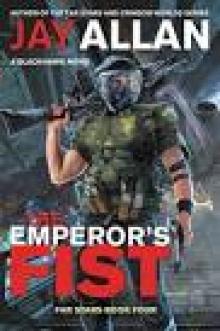 The Emperor's Fist
The Emperor's Fist Blood on the Stars Collection 1
Blood on the Stars Collection 1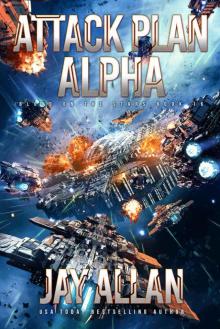 Attack Plan Alpha (Blood on the Stars Book 16)
Attack Plan Alpha (Blood on the Stars Book 16)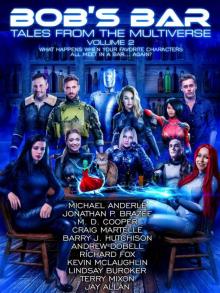 BOB's Bar (Tales From The Multiverse Book 2)
BOB's Bar (Tales From The Multiverse Book 2)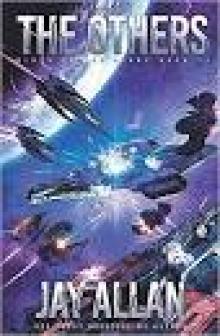 The Others
The Others Nightfall
Nightfall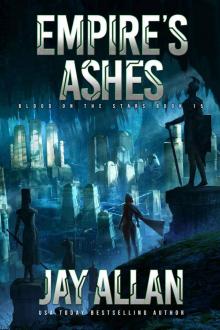 Empire's Ashes (Blood on the Stars Book 15)
Empire's Ashes (Blood on the Stars Book 15) Wings of Pegasus
Wings of Pegasus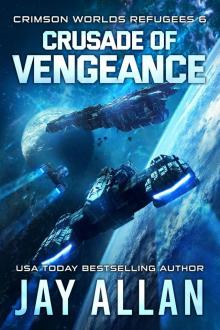 Crusade of Vengeance
Crusade of Vengeance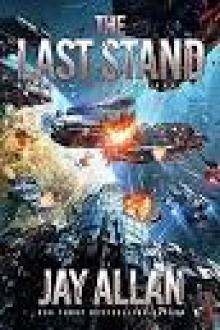 The Last Stand
The Last Stand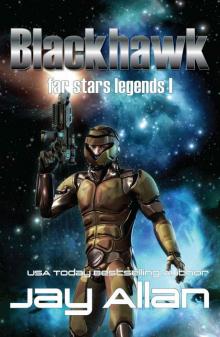 Blackhawk: Far Stars Legends I
Blackhawk: Far Stars Legends I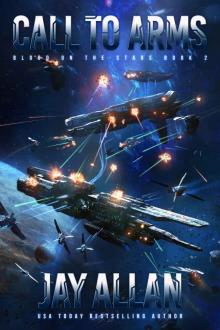 Call to Arms: Blood on the Stars II
Call to Arms: Blood on the Stars II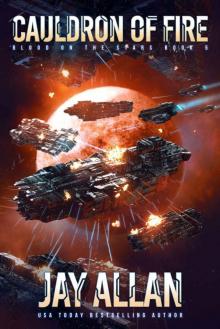 Cauldron of Fire (Blood on the Stars Book 5)
Cauldron of Fire (Blood on the Stars Book 5)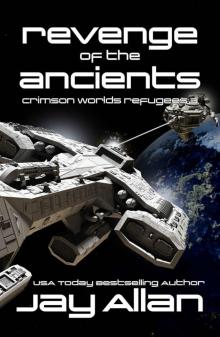 Revenge of the Ancients: Crimson Worlds Refugees III
Revenge of the Ancients: Crimson Worlds Refugees III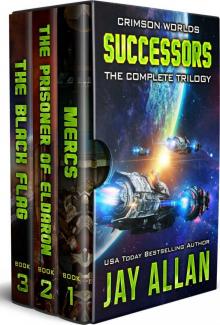 Crimson Worlds Successors: The Complete Trilogy
Crimson Worlds Successors: The Complete Trilogy The Grand Alliance
The Grand Alliance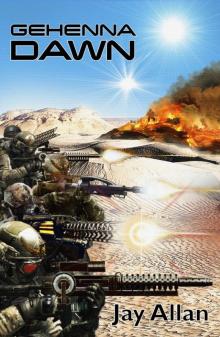 Portal Wars 1: Gehenna Dawn
Portal Wars 1: Gehenna Dawn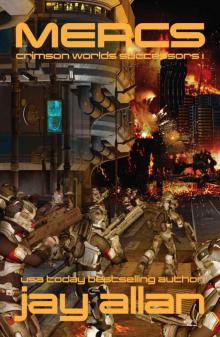 MERCS: Crimson Worlds Successors
MERCS: Crimson Worlds Successors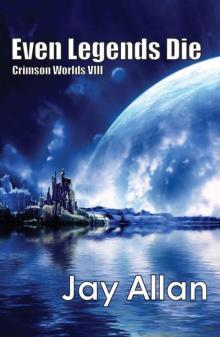 Crimson Worlds: 08 - Even Legends Die
Crimson Worlds: 08 - Even Legends Die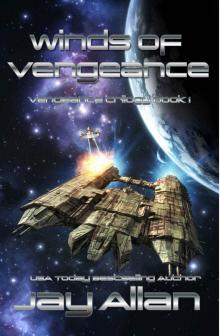 Winds of Vengeance
Winds of Vengeance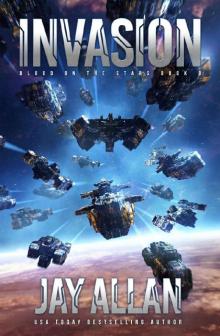 Invasion (Blood on the Stars Book 9)
Invasion (Blood on the Stars Book 9) A Little Rebellion (Crimson Worlds III)
A Little Rebellion (Crimson Worlds III)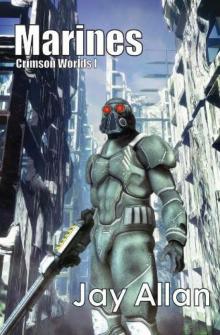 Marines
Marines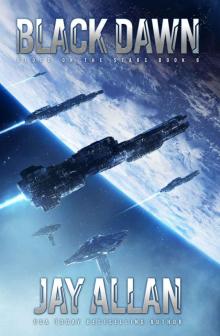 Black Dawn (Blood on the Stars Book 8)
Black Dawn (Blood on the Stars Book 8)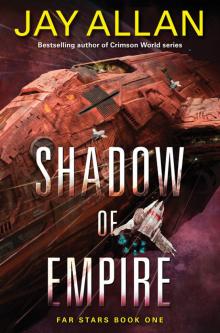 Shadow of Empire
Shadow of Empire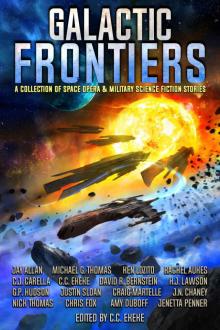 Galactic Frontiers: A Collection of Space Opera and Military Science Fiction Stories
Galactic Frontiers: A Collection of Space Opera and Military Science Fiction Stories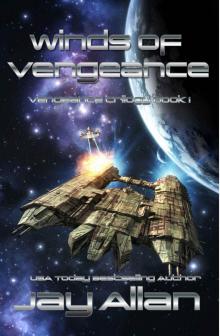 Winds of Vengeance (Crimson Worlds Refugees Book 4)
Winds of Vengeance (Crimson Worlds Refugees Book 4)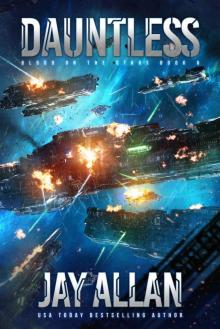 Dauntless (Blood on the Stars Book 6)
Dauntless (Blood on the Stars Book 6) Portal Wars: The Trilogy
Portal Wars: The Trilogy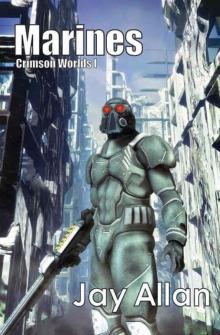 Marines cw-1
Marines cw-1 The Cost of Victory
The Cost of Victory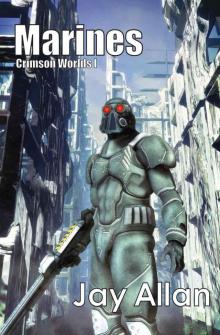 Marines (Crimson Worlds)
Marines (Crimson Worlds)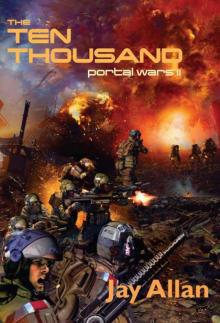 The Ten Thousand: Portal Wars II
The Ten Thousand: Portal Wars II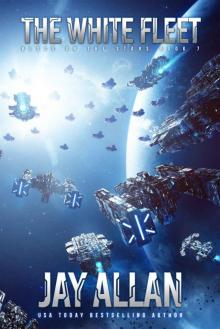 The White Fleet (Blood on the Stars Book 7)
The White Fleet (Blood on the Stars Book 7)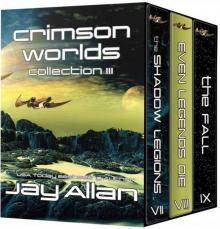 Crimson Worlds Collection III
Crimson Worlds Collection III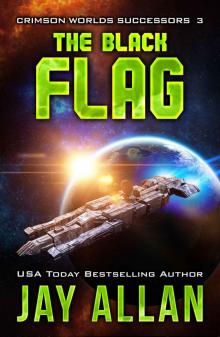 The Black Flag (Crimson Worlds Successors Book 3)
The Black Flag (Crimson Worlds Successors Book 3)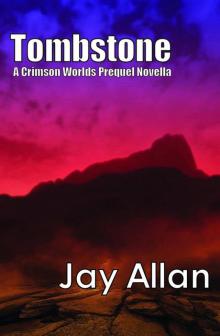 Tombstone
Tombstone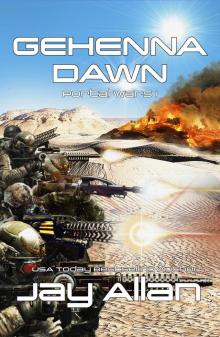 Gehenna Dawn
Gehenna Dawn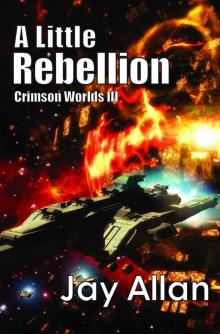 A Little Rebellion (Crimson Worlds)
A Little Rebellion (Crimson Worlds)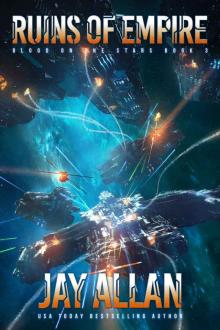 Ruins of Empire: Blood on the Stars III
Ruins of Empire: Blood on the Stars III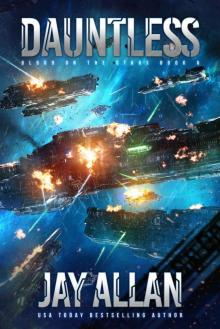 Dauntless
Dauntless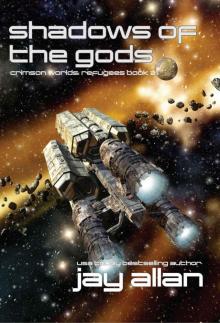 Shadows of the Gods: Crimson Worlds Refugees II
Shadows of the Gods: Crimson Worlds Refugees II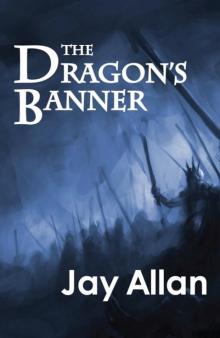 The Dragon's Banner
The Dragon's Banner Echoes of Glory (Blood on the Stars Book 4)
Echoes of Glory (Blood on the Stars Book 4)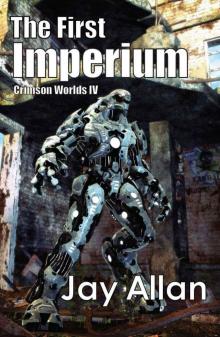 Crimson Worlds: 04 - The First Imperium
Crimson Worlds: 04 - The First Imperium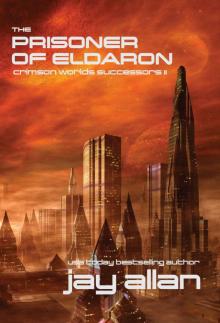 The Prisoner of Eldaron: Crimson Worlds Successors II
The Prisoner of Eldaron: Crimson Worlds Successors II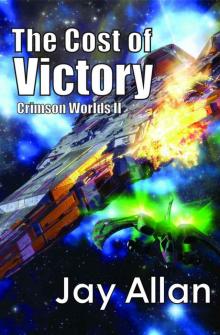 The Cost of Victory (Crimson Worlds)
The Cost of Victory (Crimson Worlds)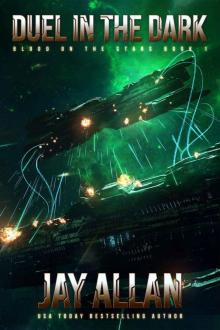 Duel in the Dark: Blood on the Stars I
Duel in the Dark: Blood on the Stars I Into the Darkness: Crimson Worlds Refugees I
Into the Darkness: Crimson Worlds Refugees I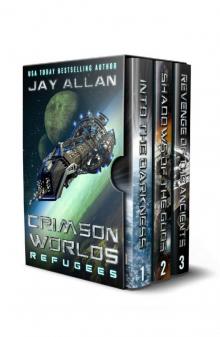 Crimson Worlds Refugees: The First Trilogy
Crimson Worlds Refugees: The First Trilogy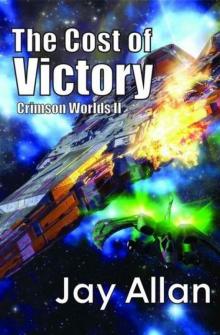 The Cost of Victory cw-2
The Cost of Victory cw-2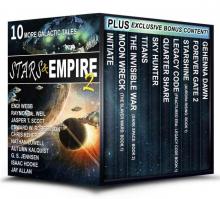 Stars & Empire 2: 10 More Galactic Tales (Stars & Empire Box Set Collection)
Stars & Empire 2: 10 More Galactic Tales (Stars & Empire Box Set Collection) Flames of Rebellion
Flames of Rebellion Stars & Empire: 10 Galactic Tales
Stars & Empire: 10 Galactic Tales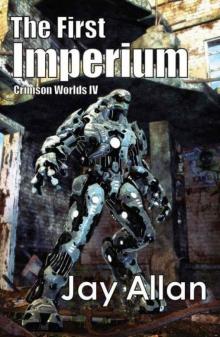 The First Imperium cw-4
The First Imperium cw-4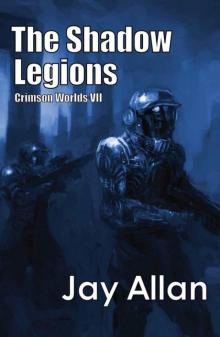 Crimson Worlds: 07 - The Shadow Legions
Crimson Worlds: 07 - The Shadow Legions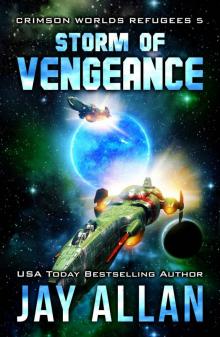 Storm of Vengeance
Storm of Vengeance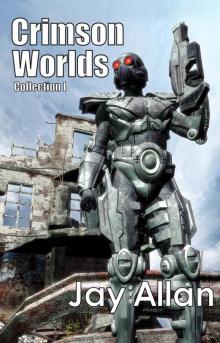 Crimson Worlds Collection I
Crimson Worlds Collection I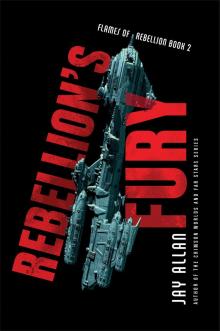 Rebellion's Fury
Rebellion's Fury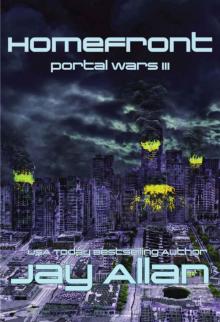 Homefront: Portal Wars III
Homefront: Portal Wars III Tombstone (crimson worlds)
Tombstone (crimson worlds)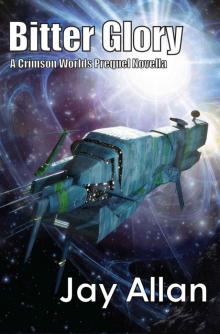 Crimson Worlds: Prequel - Bitter Glory
Crimson Worlds: Prequel - Bitter Glory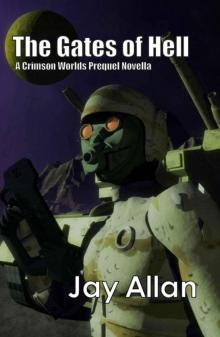 Crimson Worlds: Prequel - The Gates of Hell
Crimson Worlds: Prequel - The Gates of Hell The Fall: Crimson Worlds IX
The Fall: Crimson Worlds IX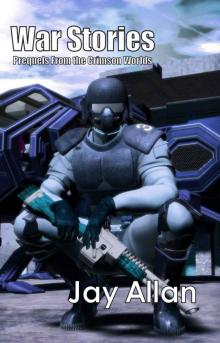 Crimson Worlds: War Stories: 3 Crimson Worlds Prequel Novellas
Crimson Worlds: War Stories: 3 Crimson Worlds Prequel Novellas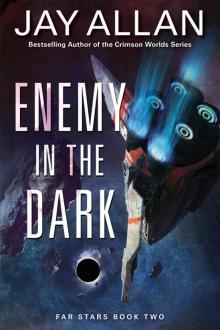 Enemy in the Dark
Enemy in the Dark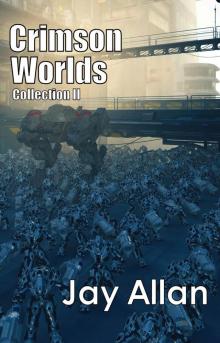 Crimson Worlds Collection II
Crimson Worlds Collection II